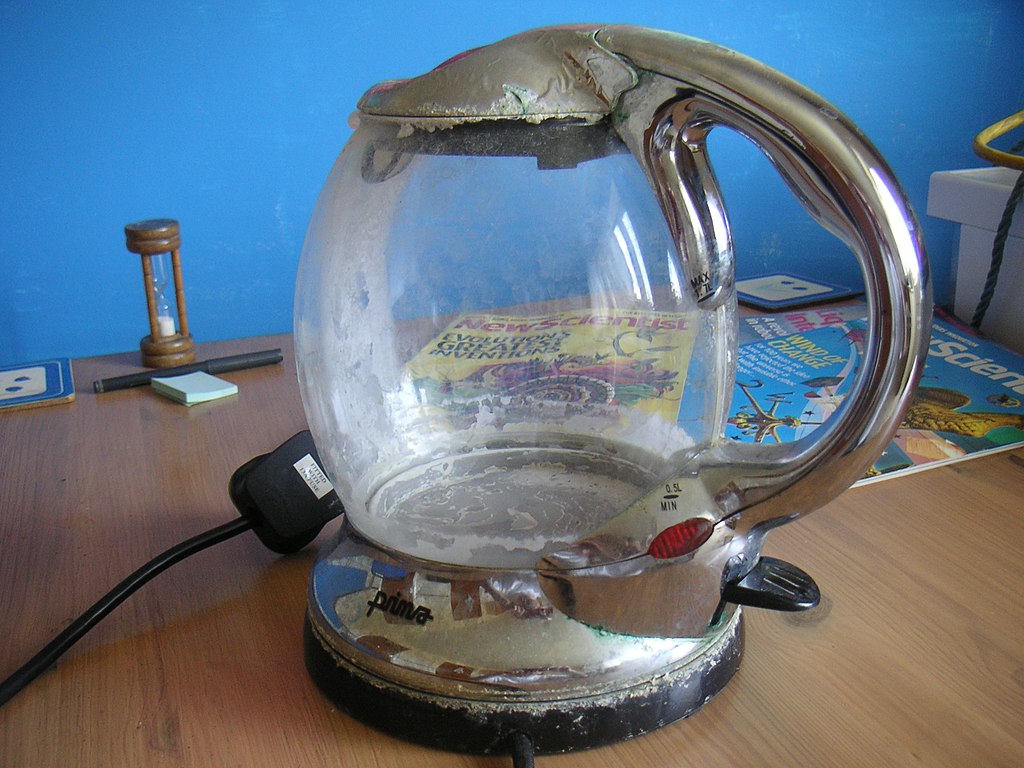Kettles are often filled with limescale no matter how much you try to clean them. Limescale is easily recognizable by the white residue it leaves after boiling water.
Limescale may look unpleasant in your kettle and no one wants white chunks to float around in their cup of tea.

While many may think that drinking water with too much limescale is bad for you, in reality, it might not be as bad as you think. In this article, let’s uncover the truth about this commonly occurring water problem in households.
So before discussing if limescale is bad for you, let’s understand what is the limescale in the first place. Limescale is simply the white residue left after water full of minerals evaporates.
Water with excessive minerals is known as hard water and when hard water is heated, it leaves white stains on the kettles, boilers, water pipes, washing machines, etc.
Naturally occurring minerals such as calcium carbonate and magnesium carbonate get into the water as it comes into contact with rocks containing limestone, sandstone, and chalk.
These minerals normally get into the water when rainfall seeps through the ground.
Limescale in water is much more of a nuisance in the house rather than a health hazard. Various researches prove drinking water with excessive hardness does not cause any health problems.
However, hard water has been known to cause dry & itchy skin and alleviate the symptoms of eczema. Washing hair in hard water can also lead to soap scum in the hair which could lead to dandruff and hair fall.
However, hard water could prove to be a frustrating and expensive problem for your home.
Limescale buildup spoils the overall look & feel of the house. The effects of limescale buildup can be seen throughout the house, especially in the kitchen & bathroom.
That’s because the detergent does not lather well with hard water and leaves a soap scum which can also irritate your skin.
Hard water destroys the heating element of these appliances and also decreases their efficiency.
If you have already spotted limescale deposits in the kettle and would like to them, there are some simple fixes to get the job done.
Simply fill the kettle with half water and half vinegar solution overnight. Then boil it for 15 minutes and scrub gently to scrape off the deposits.
This simply DIY trick works in most cases but you’ll have to keep doing it periodically as limescale will reappear. If you are observing limescale deposits in the kettle and throughout your house, it could be a bigger problem.
Limescale in the kettle is often the most obvious symptom of the hard water problem in the house. It is likely that all the pipework in the house would be full of limescale.
You may not realize this but eventually, this will clog the pipes and could lead to pipe bursts which may result in very expensive repairs/improvement works.
It is critical to eliminate the hard water throughout the house by softening the water. Water softeners remove excessive hardness causing minerals from water and making the water soft.
Soft water does not leave limescale deposits and overtime will dissolve all the existing limescale present in the pipework.
In fact, it is the only permanent solution to the limescale problem in the house.
A water softener will prevent limescale in the house and deliver a range of benefits such as better skin & hair, enhanced life of appliances, and significant savings.